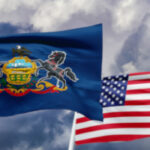Gauselmann CEO has criticized the British government’s decision to not allow adult gaming centers to reopen on April 12.
Adult Gaming Businesses Won’t Reopen on April 12
Paul Gauselmann, owner and CEO of Gauselmann Group, has written a personal letter to the UK Prime Minister, Boris Johnson, communicating his disappointment over the government’s decision not to include adult gaming centers in the non-essential business list allowed to reopen starting April 12.
In a statement last month, Johnson had announced that betting shops across the UK would reopen alongside other non-essential retail properties as part of the British authorities’ reopening roadmap. Adult gaming facilities, including casinos and bingo halls, will however not be able to resume activities until May 17, for the next stage of the plan, which includes lighter restrictions against Covid-19.
The letter, which was also sent to Chancellor of the Exchequer Rishi Sunak, and Secretary of State for Business, Energy and Industrial Strategy Kwasi Kwarteng, marks the first time Gauselmann has written to a head of government on a political issue in over 60 years of corporate leadership.
Gauselmann Requests a Review of the Decision
Gauselmann Group currently runs the Cashino franchise of adult gaming centers via its Merkur division, with 174 locations throughout the UK. Paul Gauselmann demanded Johnson review the decision. The operator’s facilities have “attract comparably small numbers of customers who do not stay for long”, referring to the non-essential retail properties set to open next month.
“For this reason, we cannot understand the decision which permits betting shops to open even though they operate the same gaming machines,” he declared.
According to the businessman, this decision puts the company at a major market disadvantage and he anticipates a long-term erosion of Gauselmann’s customer base as a result. Any further delay in reopening, according to him, could jeopardize any of the company’s future investments.
Gauselmann said his group can recognize that the government must make tough choices, but that totally “unproblematic” companies should not be barred from opening in the name of preventing the spread of the virus.




